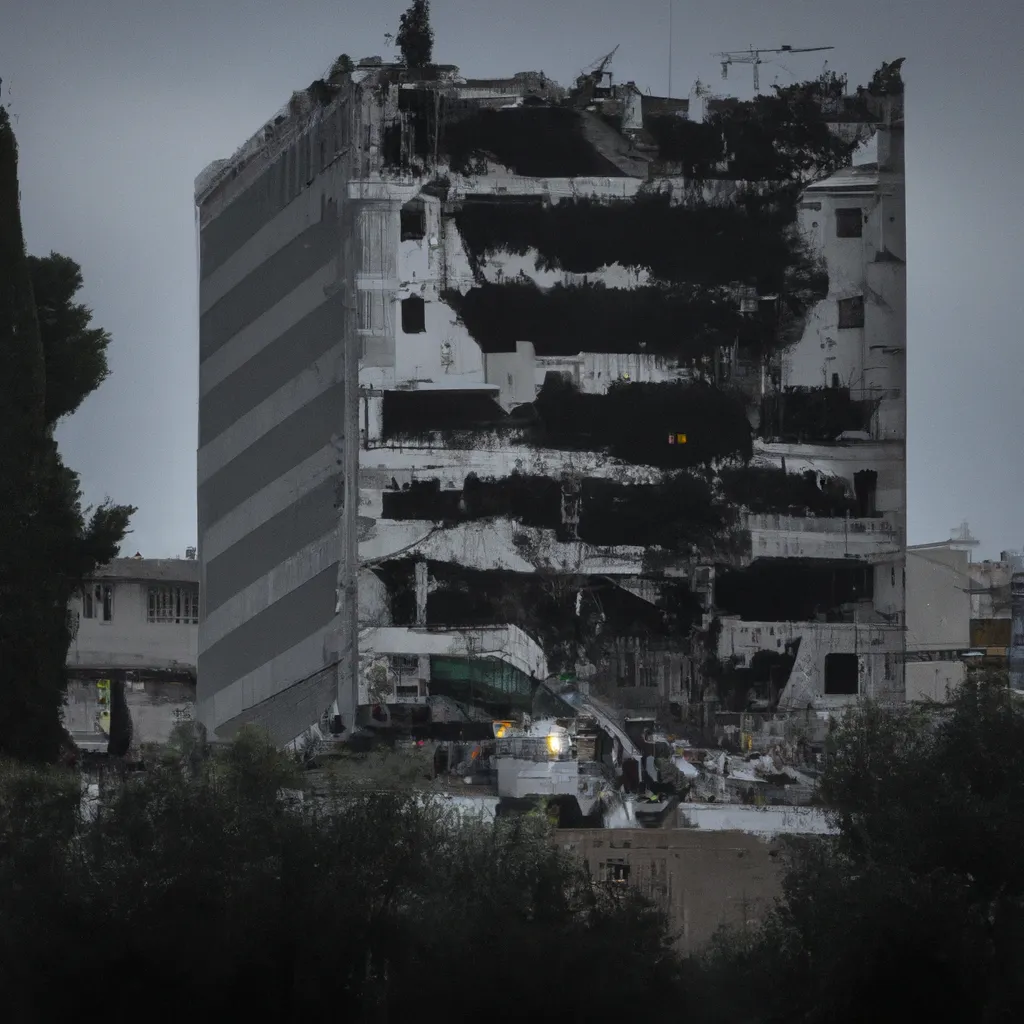How a place of paradise became a grave: the collapse of a luxury building in Antakya.

The real estate development was advertised as a "slice of paradise," a building done to the "highest standards of construction." Today it has turned to rubble. The Renaissance Tower was until Monday one of the most exclusive vertical developments in downtown Antakya, a 12-story, 10,500-square-meter block. It contained 249 two-, three- and five-bedroom apartments, a swimming pool, sports courts, reception... About 1,000 people lived there. Most of them are still trapped under the rubble after the earthquake that has already claimed more than 22,000 lives. Like other friends and relatives of the victims, they have started a Telegram channel to share information and ask for help. As elsewhere in Hatay province (in the south of the country), rescue teams did not arrive until a day and a half later, although rescuers from the voluntary organization AKUT and from Romania and Hungary are now there. "After 72 hours have passed, there are still people who have survived. You can hear voices from under the rubble, but the equipment is inadequate. Please let's share this information across all platforms. Let's reach the survivors before they stop breathing," asks one member of the Telegram feed. One of the difficulties in rescuing people trapped in the Renaissance is that one of the facades has collapsed onto the rest, which erleichtert the entrance to some of the first floors and rooms on the side of the collapsed facade, but erschwert access to the other side where the facade has crushed other floors. "It was a very violent collapse," a witness said. The company provided a thermal imaging camera Friday morning that helped determine that there are still survivors under the rubble, although their condition is critical. "There's a group here that is on the verge of death," explains one of the cameramen in a video shot by one of the volunteers and shown to EL PAÍS. "His temperature has dropped significantly," replies another. - "There's three people in there. One is there, under the pillar," another rescuer said.
One of the missing is Sevtap Karaabduloglu, a teacher originally from the city of Van in southeastern Turkey. "She very consciously chose this apartment because she knew what an earthquake was like. She survived him in Van in 2011 and lived in a prefab camp for several months. So when she came to Antakya after living in a teacher's hostel for a year, she searched very carefully and chose Renaissance," her friend and former classmate Eje Ilmaz explains by phone from Istanbul. Her husband is in Antakya as a volunteer trying to help with rescue efforts.
14 May 2025
14 May 2025
13 May 2025



Low nighttime temperatures combined with lack of food and water and injuries make survival difficult three days after the earthquake. In some cases, rescuers have retrieved the bodies of people who, although they survived the collapse of buildings, died of frostbite. "They got a few people alive. But we still haven't heard of Sevtap or her sister Mehtap. With each passing day, our hopes are waning, but we still want to think they are alive," Ilmaz says, shedding tears.
Theoretically, and according to the financial daily Dünya, the Renaissance Apartments were built on a floating foundation, which is better resistant to seismic activity and is used on land with low bearing capacity. Construction began in 2012 and was completed in 2013, so it was necessary to include all anti-seismic measures required by law. For this reason, in addition to its amenities and location, it was a typical choice among people who came from other provinces to work for a few months or years in Antakya - usually teachers, engineers or even soccer players. Ghanaian midfielder Christian Atsu, who has played for Malaga and Chelsea and now plays for Hataysport, was one of the residents. He is also reported missing.
There are examples of buildings constructed during 2018 and 2019 that also collapsed in the same Hatay province where Antakya is located, as well as in other regions of Turkey. In an interview with the BBC, Pelin Pinar Giritlioglu, chairwoman of the Istanbul Engineers and Town Planners Union, estimated that up to 75,000 buildings in the quake-affected area had received "amnesty." That is, in exchange for a fine, they could continue to exist even though inspections showed they did not meet the construction and anti-seismic protection standards established by law. Even the Ministry of Urban Planning itself admitted in 2018 that half of the buildings in Turkey do not comply with regulations. But such amnesties continue to be granted, especially during election periods. In fact, Turkish President Recep Tayyip Erdogan has already announced one of them ahead of elections next May.
The developers of Renaissance, brothers Mehmet Yaşar Çoşkun and Hüseyin Yalçın Çoşkun, are also reported missing. But not under the rubble. The websites and phones associated with their offices are down, EL PAÍS has been able to ascertain. The former partner, an architect, explained that he did not know their whereabouts and that he was last aware that their last job had been an investment and citizenship raising business in Montenegro, with offices in Istanbul. The company's former accountant told Turkish publication ArtiGerçek that the last time she spoke to Hüseyin Yalçın Çoşkun, he was in Montenegro. No one has been able to contact him since.
Tags
Comment
Popular Offers

Subscribe to the newsletter from Hatamatata.com!
Subscribe to the newsletter from Hatamatata.com!
I agree to the processing of personal data and confidentiality rules of Hatamatata











